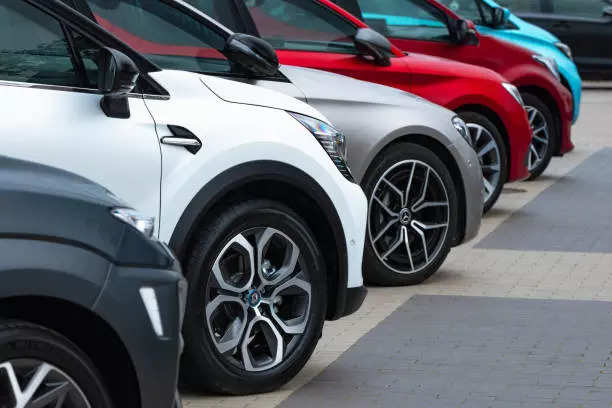
The automotive industry globally is drifting towards electric vehicles (EVs) as a sustainable alternative to traditional internal combustion engine (ICE) vehicles. This heralds the birth of multi-brand EV dealerships. As the demand for EVs continues to rise in India, multi-brand EV dealerships present great potential and a good opportunity.
Multi-brand EV dealerships play a crucial role in enhancing market accessibility, especially in regions where individual manufacturers may not have a significant presence. By consolidating various brands, these dealerships make it easier for customers in less developed EV markets to access and explore a diverse range of electric vehicle options.
Collaborative partnerships among manufacturers, dealers, and service providers have become increasingly common in multi-brand EV dealerships. These partnerships allow for resource sharing, expertise collaboration, and streamlined operations, ultimately creating a cohesive customer experience.
With the expansion of the EV market, the availability of charging infrastructure has become a critical factor. Multi-brand EV dealerships are investing in charging stations and collaborating with charging network providers to establish a comprehensive charging ecosystem. This infrastructure focus encourages EV adoption and ensures customers’ convenience and peace of mind.
To meet the changing expectations of consumers, multi-brand EV dealerships are embracing digitalisation and establishing a robust online presence. Online platforms enable customers to browse and compare electric vehicle models, explore financing options, schedule test drives, and even make remote purchases. This integration of digital technologies enhances accessibility and convenience for customers.
Growth trends
Analytical insights and trends indicate the potential for substantial growth in the global multi-brand EV dealership market. Increasing consumer awareness of the environmental impact of traditional vehicles and the benefits of electric mobility contributes to the growing interest in EVs. Offering multiple brands gives dealerships a competitive advantage by attracting a broader customer base. The introduction of subscription-based models appeals to customers who prefer flexible ownership options.
The future of multi-brand retail in EV industry holds exciting prospects. Firstly, as the EV market continues to evolve, multi-brand dealerships are expected to expand their offerings beyond cars to include electric scooters, bikes, and commercial vehicles. This diversification will cater to a broader customer base and meet the demands of different market segments. Secondly, multi-brand EV dealerships will prioritise providing exceptional customer experiences to stay competitive.
This will involve personalised services, virtual reality showrooms, and seamless online and offline channel integration to create a cohesive and convenient buying journey. Lastly, sustainable partnerships among manufacturers, dealerships, and industry stakeholders will play a crucial role in driving growth. These collaborations can optimise supply chains, improve charging infrastructure, and develop innovative financing solutions, benefiting both customers and the industry as a whole. By embracing these future trends, multi-brand retail in the EV sector has the potential to shape the way customers interact with and adopt electric mobility.
The challenges
Multi-brand EV dealerships face several challenges that need to be addressed to shape the future of the automotive industry. One of these challenges is ensuring equitable brand representation, as each manufacturer has unique requirements and expectations. Balancing these, while maintaining a cohesive dealership environment, can be complex.
Dealerships must invest in trained technicians and resources to provide quality service and maintenance for multiple brands’ electric vehicles, keeping up with the latest technology updates. Evolving regulations pose another challenge: sales, warranties, and service standards may vary across regions. Staying informed and adapting to changing regulations is crucial for compliance and seamless operations.
Lastly, investing in robust charging infrastructure is essential to support EV growth. This requires collaboration with charging network providers, securing suitable locations, and managing installation and maintenance costs. By addressing these challenges and leveraging emerging trends, multi-brand EV dealerships can significantly accelerate EV adoption and shape the automotive industry’s future.
Carvana, an online used car retailer, has expanded its offerings to include electric vehicles from multiple manufacturers. Customers can browse a wide range of EV models, access detailed information, and complete the entire purchasing process online. Multi-brand EV dealerships such as Nextmove and MisterGreen have gained prominence in Germany and the Netherlands, allowing customers to choose international electric vehicle brands and helping to drive EV adoption across the continent. The world’s largest EV market, China, has witnessed the emergence of multi-brand EV dealerships like Zhiche Auto. These dealerships offer a diverse selection of domestic and international EV brands, catering to the preferences and needs of Chinese consumers.
Multi-brand EV dealerships hold immense potential in shaping the future of the automotive industry, reflecting the rising demand for sustainable transportation. By addressing these challenges and capitalising on emerging trends, multi-brand EV dealerships can accelerate the adoption of electric vehicles and shape the future of the automotive industry.
By offering customers a diverse range of EV options, facilitating market accessibility, and adapting to digitalisation trends, these dealerships are at the forefront of sustainable transportation. Moreover, their collaborative approach and focus on infrastructure development address critical challenges associated with EV adoption, creating an enabling environment for customers to embrace electric mobility.
(Disclaimer: Narasimha Jayakumar is CEO of Greaves Retail and Distribution, Views are personal)

















